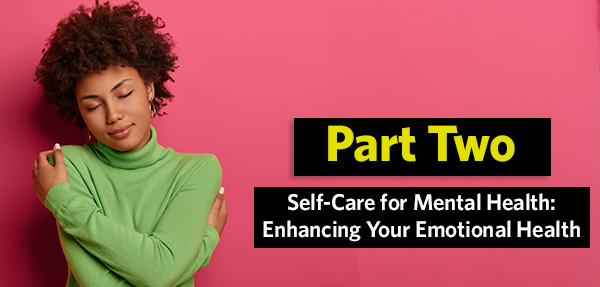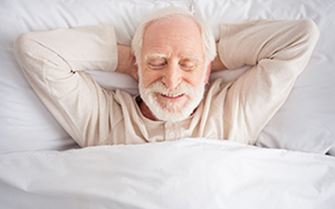Published: 28th May 2025.
Last updated: 28th May 2025.
Author: Cara Sherratt.
Contents

As discussed in Part 1 of this three-part wellness series, we understand that sometimes getting out of bed can feel difficult, so how do we begin to achieve small acts of self-kindness or self-care? We’ve pulled together more self-care ideas that are designed to boost confidence, encourage achievements and inject positivity during times of stress or difficulty.
In this blog, we’ll cover environmental factors and evaluate the importance of rest and sleep when approaching self-care for mental health. If you missed part one, click here to read.
Get Out in Nature, or Bring Nature Indoors
The link between exposure to nature and its positive effects on health is widely understood, and suggests that spending time in nature has been found to help with symptoms of anxiety and depression. Being outside in natural light can be helpful if you experience seasonal affective disorder (SAD), which is a type of depression that means people experience symptoms as the seasons change.
Getting out into nature and going for a walk can give us the chance to simply notice the differences in textures and shapes, colours and sounds that are around us. This can help to switch up the responses from our nervous system and potentially help us to move away from our instinctive fight-or-flight modes. We also know that going outside can provide an opportunity to experience the positive impact that physical exercise can have on our mental health. So, reshaping our relationship with nature could be a good starting point to help overcome some hurdles and get active, even when we might feel less motivated.
However, plants don’t need to be in the wild for us to experience the benefits. It is believed that having indoor plants can improve mood and even lower blood pressure. During those days where someone might struggle to find the motivation to care for themselves, directing your energy into caring for something else could help. Generally speaking, people who spent time in the garden report an improvement in mood, or lessening of anxious feelings. Looking after your plants can also count as self-care. The ability to tend to something during difficult times is something that can bring people great comfort and a sense of achievement, as well as encouraging movement and reducing feelings of stress.
Declutter Your Immediate Environment
Your immediate physical space can have a huge impact on your mental space and the connection between clutter and mental health has been widely documented. The home is often seen as an aspect or an extension of one's self-identity, which can seep into our thought processes and emotions. Although some individuals might thrive in organised chaos, spending extended time in a room or workplace that is accumulating loads of stuff can sometimes make you feel disorganised, demotivated, and a little bit lost amid the mess.
Ideally, home is a place where you should feel as though you can rest and relax and disorganisation or clutter can make it difficult to do that. One study found that women who reported more clutter in their homes had higher levels of the stress hormone cortisol throughout the day compared to women who had less clutter. Some research has also shown that clutter can make it difficult to focus on specific tasks – as clutter makes it harder to focus and complete projects efficiently.
Decluttering can provide a better sense of achievement; the opportunity to find quick wins. Physically being able to see these achievements can be a good motivator to continue healthier self-care habits when it comes to your environment.
Clean Personal Items or Areas
If decluttering your space feels like an overwhelming task, consider choosing a select few items to tidy or clean. Whether that is a bedside table, kitchen utensils or crockery, a pile of clothes, coffee cup, makeup spaces or gaming spaces. Breaking larger effort acts of self-care down into manageable and achievable wins can sometimes produce more effective results, examples include:
- Wipe down a mirror
- Wash up cups and mugs
- Make your bed
- Clear a worksurface
- Wipe down shelves or windowsills
- Fold 5 items of clothing
Prioritise Sleep Quality and Restful Periods
Sleep and periods of rest and relaxation are a very important part of looking after yourself. It is understood that a lack of sleep, or too much sleep, produces negative effects on cognitive function and performance. Studies show that sleep deficiency changes activity in some parts of the brain and therefore if you're sleep deficient, you may have trouble making decisions, solving problems, controlling your emotions and behaviour, and coping with change.
Begin by looking at your sleep patterns and identify areas that can improve sleep routines or sleep quality. Look at your immediate environment and try to minimise disruptions such as artificial light or sound and ensure comfortable temperatures – we delved into the impact of sleep on mental health in our blog: The Role of Sleep in Mental Health: Tips For Better Rest and Recovery where you can find more tips on how to improve sleep.
The Benefits of Routine
When you are not feeling your best, it is easy to let time get away from you. Everyday routines can take a back seat, and you may not think much of it. However, routines of any description – no matter how big or small, simple or complex, can be both a helpful and enjoyable part of the day when it comes to self-care. Routines can exist around aspects of life such as sleeping, eating, cleaning and socialising, and they play a more important role than you might first suspect. Creating a routine or making small changes to existing routines can help reduce the stress of daily decision making, reduce uncertainty and providing structure.
If your everyday routines are feeling overwhelming on any given day, it might be useful to create micro-routines that can be used to retain structure in your day without feeling like there is a mountain to climb. For example, if your morning routine may usually consist of a shower, teeth brushing with flossing and mouthwash, a dog walk and a morning coffee, during low-energy periods consider breaking this routine down into small chunks that can be more achievable. Start by brushing your teeth, doing as much of that routine as possible before making your morning coffee, but then ensure you take some time to recuperate and consider walking the dog and shower in the evening.
If you’d like to get live-saving Mental Health First Aid training and learn how to properly support those around you who may be affected by mental ill-health, enrol in our new Mental Health First Aid course today.
* The information provided here is intended for general wellbeing support and educational purposes only. It is not a substitute for professional medical advice, diagnosis, or treatment. The content shared should not be interpreted as clinical guidance. If you are experiencing symptoms of mental ill-health or have concerns about your mental wellbeing, we strongly encourage you to speak with a qualified healthcare provider, such as your GP or a registered mental health professional.
Sources
https://www.webmd.com/mental-health/psychological-benefits-of-routine
https://www.psychologytoday.com/gb/blog/conquering-codependency/202312/routine-reset-daily-habits-for-good-mental-health
https://heymind.org.uk/how-decluttering-can-help-to-improve-mental-health-by-annie-button/
https://www.verywellmind.com/decluttering-our-house-to-cleanse-our-minds-5101511
https://www.sciencedirect.com/science/article/abs/pii/S0272494421000062
https://www.mdpi.com/1660-4601/19/12/7454
https://www.mind.org.uk/information-support/types-of-mental-health-problems/seasonal-affective-disorder-sad/











